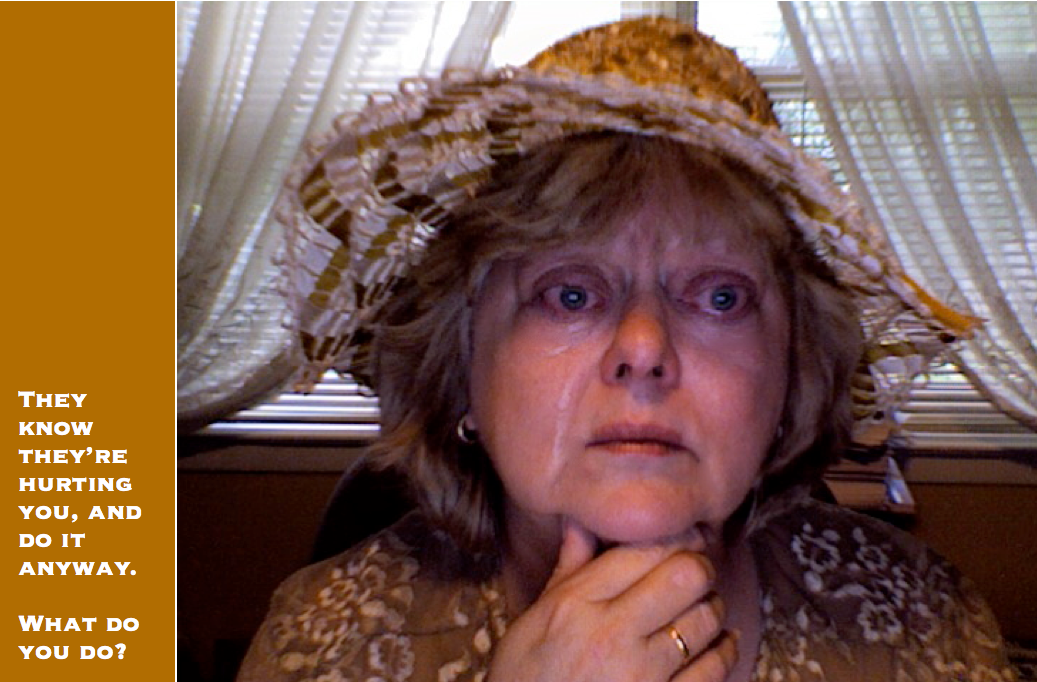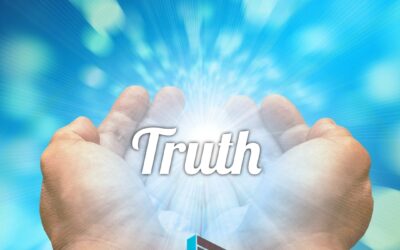At some time or another, often many times over the course of a life, we all ask or wonder about the purpose of life. And at different stages of our own lives, we’ll answer that question in different ways.
Whether the reason for that is seasonal (we see the world and ourselves much differently at 20 than at 30 or 40 or 50) or predicated on experiences and exposure to different thoughts and philosophies and beliefs probably all has a lot to do with those changes. But there are other things that factor in, too.
in 1997, my mother died. She’d lived me with and my family for nine years–since my dad’s death. To say my mom and I were close is such a gross understatement of the way things were between us. Little between us ever actually had to be said. We just knew.
When she died, I wasn’t unfamiliar with death. I’d already lost my grandparents, my father, my brothers, far too many other relatives and a number of friends. Death and grief were not strangers to me. And yet her death impacted me in countless and profound ways I couldn’t have expected.
About eight months after she died, I was standing at the door to my then office, looking out over the deck at the trees and everything seemed so futile. I well remember thinking that if this is all there is to life, then why bother? You’re born, you grow and laugh a little, cry a little and then you die. Surely, I’m missing something. Surely there’s more to life than this cycle.
So more than quizzing myself on my life’s purpose, I was quizzing myself on the purpose of life as I see it. At that moment, I truly couldn’t see the merit in it.
Now some would say that was depression. It wasn’t. This was an opportunity. A launching pad for delving, seeking, looking for meaning on a grand scale. Something, anything, that would make the process of life make sense–and seem worthy.
I turned to philosophers on the subject, to the “great” minds, to clerics. I received many answers that held merit, but none that gave me that punch to the gut that says, “This is it, Tiger. That’s the one.”
The responses were interesting, particularly the ones that validated existence. One cleric told me that God is pure and therefore cannot experience impurity. He created us so that He could experience. Another said God created us for companionship. I liked that one, yet I also recall that Christ existed before God laid the foundations of the world. The Word made flesh. So didn’t God already have companionship? And the Holy Spirit, too, was there, in the beginning. So God had perfect companions, in a sense. Maybe the reason had to do with the imperfection thing . . . or with something else entirely. Or even many something else’s.
In the years since 1997, I have explored a lot of possibilities. So many that I’ve wondered if the meaning of life isn’t directly relative to where a person is on their individual spiritual journey. At this time in this place, “x” is the purpose of life–as it pertains to you. Since we’re on different paths, that seemed logical if not wholly satisfying.
Then a few weeks ago, my mother-in-law passed away. Before she died, we spent a lot of time together, talking and frankly, listening. She recalled significant-to-her events in her life going back to before she was in grade school. That’s a long memory for a woman ninety-one years old. What fascinated me was that during those times when she was in a pinch, she had learned to rely on God. He, she said, had never failed her.
There were times when things didn’t work out as she wanted, thought she needed, would have liked to have seen them work out, but always in the end, with the clarity of hindsight, she’d seen that they’d worked out exactly as they’d needed to work out for this or that reason.
And the answer to my twelve-year question hit me, and I got that sucker punch to the gut, that “This is it, Tiger.” That is the purpose of life. To trust God.
Trusting God. Discovering that He is trustworthy. Affirmation of it. Confirmation of it. Satan enjoyed the Heavenly realm and yet he fell. The Bible tells us that the least in Heaven is greater than the greatest of mortals. So if he could fall, we certainly could. Apparently, God is filling a need in us, giving us the opportunity to gain any proof we might want/need.
The Bible tells us this in blunt terms, but not being wholly focused on that exact question at the time I read the answer, I missed it–many, many times. I find I’ve done that often, and odds are good, I’ll continue to do so. (I guess when the student is ready, the teacher comes is true. :)) It tells us not to put faith in/rely on people. Children turn against their fathers and mothers. Daughters-in-law against their mother-in-laws, and a person’s enemies are the people in one’s own house. (The ones most apt to betray you, break your trust, use, abuse, lie to you, and to manifest all the other potential/possible infractions encompassed in man’s inhumanity against man.)
This is significant enough to be related to us three times in the Bible: Micah 7:6, Matthew 10:35; Luck 12:53. Yet I didn’t look at it in any of the three in the purpose-of-life context–at least, I hadn’t until now.
It goes on to tell us to learn to rely only on God. To trust Him. and to trust in Him.
The purpose of life well might be multifaceted. There well could be many purposes. But I do believe the greatest of them is to trust God.
We’re charged to love Him with all our might–everything we’ve got. That’s the most important thing we’re to do–the chief commandment. That love, the requisite totality of it, requires trust. It can’t be achieved without trust.
So now I’m sitting here smacking myself on the forehead saying “Of course.”
And I’m whispering a huge “Thanks, Mom” to my mother-in-law for passing me the key to that unopened door. One I now, for whatever value you find in it, pass to you.
Blessings,
Vicki
c2008, Vicki Hinze




